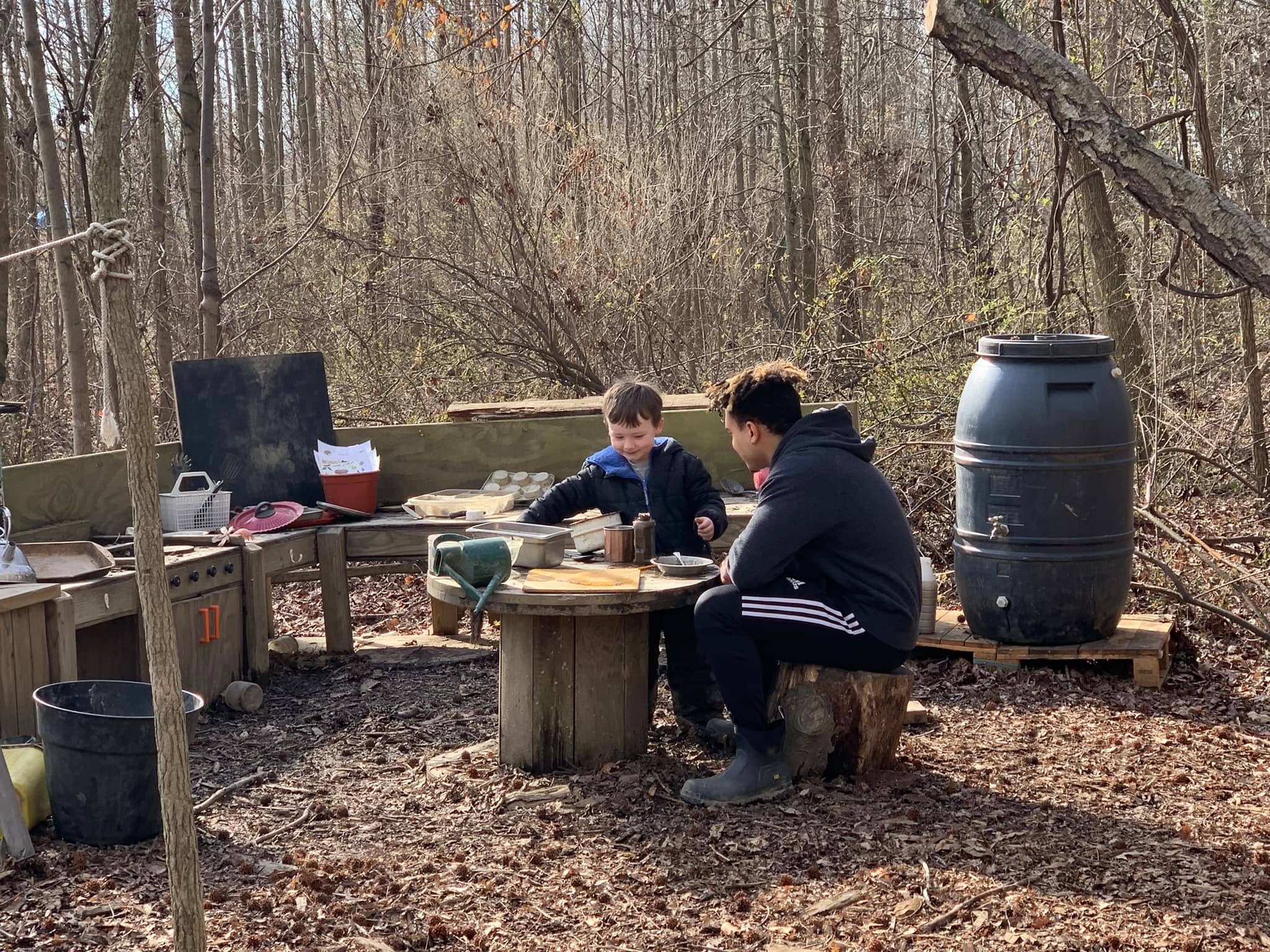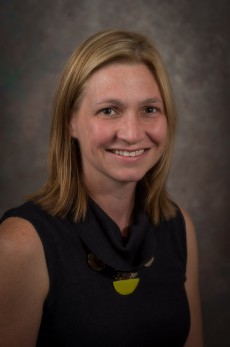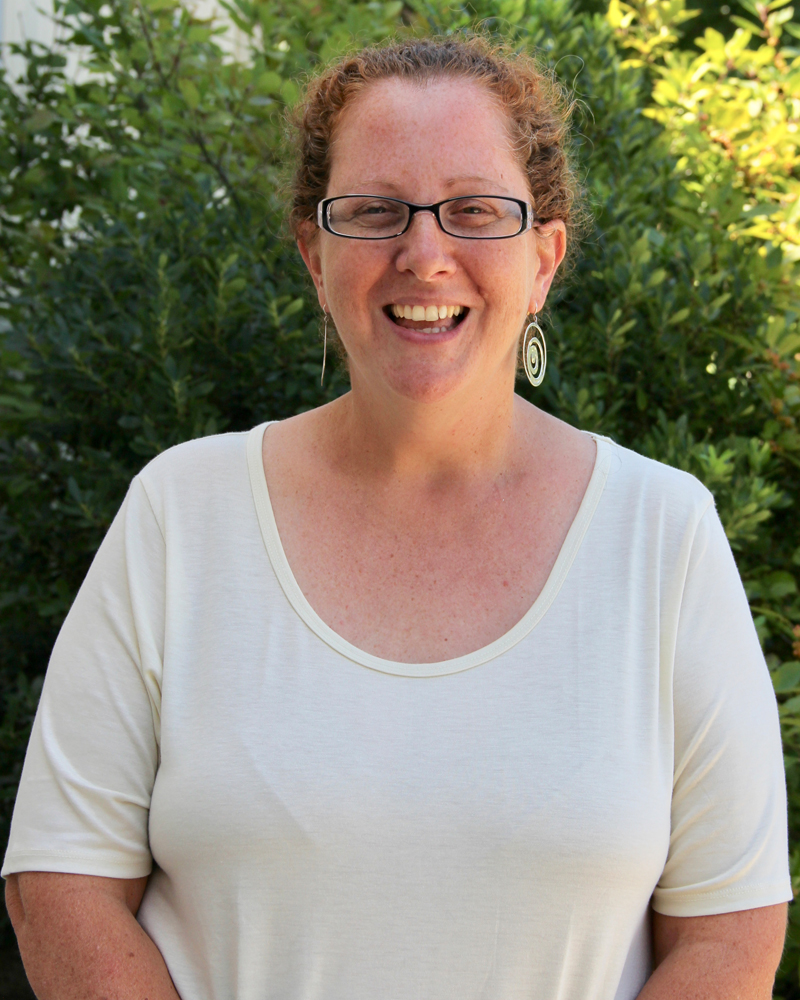Research Spotlight: Jennifer Gallo-Fox and Dorit Radnai-Griffin

UD Associate Professor Jennifer Gallo-Fox, Lab School Director Dorit Radnai-Griffin and their co-authors show how laboratory schools respond to challenges in early childhood education
More than 100 years ago, laboratory schools—like University of Delaware’s Lab School—were developed on university campuses to respond to the needs of their communities and provide leadership in early childhood education (ECE). Today, after the COVID-19 pandemic exposed the fragility of our ECE systems, the work of these schools for young children—which also serve as learning and research sites for students and professionals—is even more critical.
With a new article in the Early Childhood Education Journal, UD Associate Professor Jennifer Gallo-Fox and UD’s Lab School Director Dorit Radnai-Griffin demonstrate how five lab schools across the country respond to current challenges in ECE and provide valuable resources to the children, families, students and researchers they serve. Gallo-Fox, Radnai-Griffin and their co-authors encourage policymakers to look to these schools for innovation and leadership in responding skillfully to the changing needs of local communities.
“The pandemic helped expose the vulnerabilities and also critical importance of the field of early childhood education,” said Gallo-Fox, who specializes in ECE in the College of Education and Human Development’s (CEHD) Department of Human Development and Family Sciences. “University-affiliated lab schools, despite also struggling under the circumstances, innovated and reworked their practices so that they could support children, families and their teacher education programs as well as the larger community. Lab schools shared resources with others in their local communities while also using their larger networks to share practices both nationally and globally.”
Supporting early childhood educators
Uniquely housed on university campuses, lab schools often provide early care and education to young children between the ages of infancy and five years. As Gallo-Fox and her co-authors emphasize, they also support ECE students and professionals by acting as a site for observation, demonstration, practice and even innovative experimentation.
During the pandemic, when many ECE sites closed for long periods of time and universities shifted to remote instruction, lab schools at Kent State University, Purdue University, University of Delaware, University of Illinois, Urbana-Champaign and University of Tennessee, Knoxville, all worked to address the local needs of their early childhood and university programs. After a brief period of closure, these schools reopened (with additional precautions in place), despite reduced resources and the many challenges of the pandemic.
Responding to the needs of ECE undergraduates at their universities, these programs also developed video resources for university courses, created opportunities for students to observe and interact with teachers, children and families via video conferencing and supported students with field placements who did not have access to other sites.
“Throughout the pandemic, the Lab School’s primary mission of mentoring undergraduate students continued despite many other placement sites closing their doors,” Radnai-Griffin said. “We worked to creatively design our learning environments, pushing outdoors, to allow for ECE seniors to safely complete their student teaching requirements in person.”
Advocating for children and families
Gallo-Fox, Radnai-Griffin, and their co-authors also define lab schools by their ability to advocate for children and families in their communities. Many lab schools prioritize staff and family relationships so that they can offer children high-quality and often individualized care.
At UD, the Lab School advocates for a holistic approach to ECE through its nature-based programming, which incorporates social-emotional development and mindfulness practices. Families have learned how to dress their children to explore the outdoors, embrace nature in their family time outside of school and act as environmental stewards. The Lab School has also extended its support to ECE teachers and families throughout Delaware by partnering with CEHD’s Delaware Institute for Excellence in Early Childhood in its Let’s Go Outside Initiative.
The researchers also cite an example from Purdue University’s Ben and Maxine Miller Child Development Laboratory School. Recognizing that military families experience many changes in their lives, the school partnered with Purdue University ECE faculty and the Department of Defense to develop a curriculum that addressed the needs of young children in these families. The Early Learning Matters curriculum, a publicly available resource, specifically facilitates continuity for military children and their families.
Serving as sites for research and knowledge generation
Gallo-Fox, Radnai-Griffin and their co-authors also identify lab schools as important sites for research, using the Child Development Laboratory (CDL) at the University of Illinois, Urbana-Champaign, as one example.
There, the CDL houses cutting-edge equipment designed to support research activities, including audio-equipped observational booths, high-resolution digital video capture and pull-out data collection rooms. The school has also implemented systems that allow staff to seamlessly work with researchers on data collection while minimizing the impact of these activities on children. For these reasons, the school attracts researchers outside of ECE, in fields like industrial art and design, computer science, engineering and advertising.
“By being situated within universities and having Ph.D.s in administrative roles, lab schools are uniquely positioned to engage in multiple types of research,” Gallo-Fox said. “As we found during the pandemic, they can serve as idea incubators that disseminate emerging practices to their communities. They also serve as research and development by testing out new ideas, support emergent and established scholars through collaboration or serve as research sites. Finally, they can provide a network of research sites across the country.”
During the second week of April, ECE centers and university-affiliated laboratory schools across the nation celebrated the National Association for the Education of Young Children’s Week of the Young Child, an annual event honoring early learning, young children, their teachers and families. On April 26, UD’s Lab School also hosted In Bloom, a national professional learning conference on nature-based education, in honor of their 90th anniversary.
To learn more about CEHD research in early childhood education, visit its research webpage.
Article by Jessica Henderson. Photos courtesy of the Lab School.

About Jennifer Gallo-Fox
Jennifer Gallo-Fox is an associate professor in the CEHD’s Department of Human Development and Family Sciences (HDFS) at the University of Delaware. Her research focuses on the development and study of programs designed to strengthen teacher learning and practice. She works to understand the ways that teachers learn and practice within their classroom contexts and designs programs to leverage local resources that can increase teachers’ learning potential. Gallo-Fox has developed teacher education research programs in co-teaching, developmentally appropriate early childhood curriculum and instruction and early childhood science education.

About Dorit Radnai-Griffin
Dorit Radnai-Griffin is director of CEHD’s Lab School and assistant professor in HDFS. Radnai-Griffin leads program development at the Lab School and maintains high-quality programming for children, families and UD students in clinical experiences. She also provides leadership and oversight of research activities, in addition to many other responsibilities. Radnai-Griffin collaborates with ECE professionals to share the work of the Lab School staff in the areas of early childhood teacher preparation, emergent curriculum, nature-based education and mindfulness.
This research complements the work of CEHD faculty studying early childhood, including Steve Amendum, Martha Buell, Stephanie Del Tufo, Roberta Michnick Golinkoff, Rena Hallam, Myae Han, Jason Hustedt, Nancy C. Jordan, Rosalyn Washington, Anamarie Whitaker and Lynn Worden, as well as the researchers in CEHD’s Delaware Institute for Excellence in Early Childhood Education.



